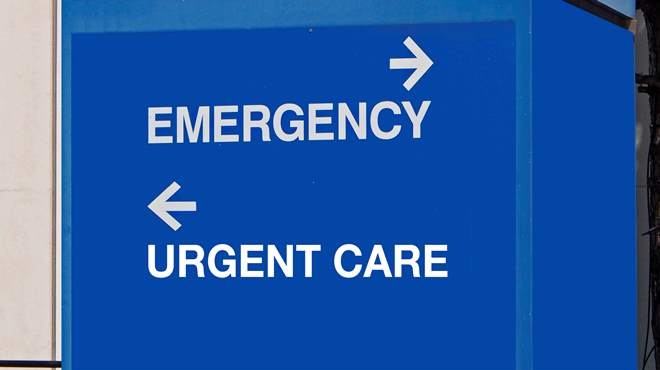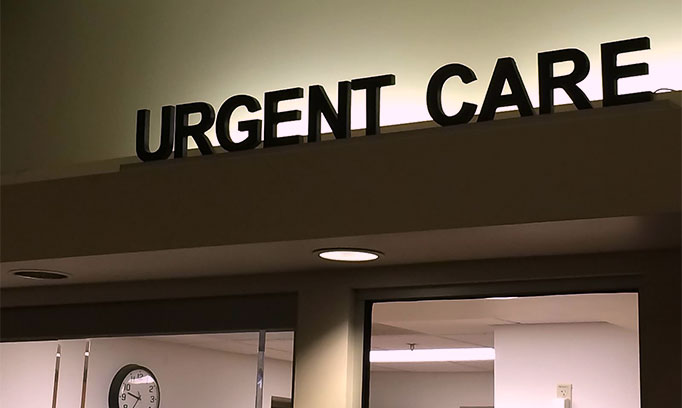Urgent Care vs. Health care: Which Is Right for Your Requirements?
Understanding the Importance of Urgent Treatment Solutions for Non-Life-Threatening Medical Issues
The value of urgent care solutions for non-life-threatening medical concerns can not be overstated, particularly in today's medical care landscape. By comprehending the benefits of urgent treatment, such as minimized wait times and price effectiveness, one can better appreciate their duty in patient health monitoring.
What Is Urgent Care?
Immediate care refers to a group of clinical services created to address non-life-threatening problems that require prompt interest yet do not call for a browse through to the emergency space. These centers provide a bridge between medical care and emergency solutions, providing obtainable healthcare alternatives for people experiencing severe clinical issues, such as small cracks, sprains, infections, or serious health problems that occur unexpectedly.

The range of services given by immediate treatment facilities can vary yet normally includes therapy for usual conditions like colds, flu, and allergies, along with minor injuries (urgent care). Furthermore, lots of urgent treatment facilities provide preventative solutions, such as inoculations and physical exams, to resolve wider health demands. By using a convenient alternative for urgent clinical issues, these centers play a vital role in the health care continuum, ensuring that people get appropriate treatment when they require it most
Advantages of Urgent Care Provider
Lots of individuals discover that utilizing immediate care solutions offers substantial advantages over standard emergency clinic gos to or awaiting a primary treatment consultation. One primary advantage is the lowered wait times. Immediate treatment facilities typically have shorter delay durations, allowing individuals to obtain timely clinical focus when they need it most. This expedited care is specifically helpful for non-life-threatening problems that require timely treatment.
An additional benefit is the extended hours of operation. Numerous urgent care centers are open evenings and weekends, fitting individuals who may not be able to see their main treatment medical professional throughout normal workplace hours. This adaptability makes it less complicated for people to access care at their convenience.
Additionally, immediate care services usually provide an economical option to emergency clinic. When seeking therapy for small ailments at urgent treatment facilities instead than health center emergency situation departments., patients often deal with lower co-pays and overall costs - urgent care.
Finally, urgent care facilities are furnished to deal with a variety of non-life-threatening problems, offering a broad array of services under one roof. This thorough method not just improves the treatment procedure but additionally boosts individual contentment by providing punctual and effective treatment.
Common Problems Treated
What types of non-life-threatening problems can clients expect to get therapy for at urgent treatment? Urgent care centers are geared up to manage a wide variety of common medical problems that call for prompt recommended you read focus yet do not present an instant threat to life. These facilities typically treat problems such as small cracks, strains, and stress, giving vital take care of injuries that occur during everyday activities or sports.
Furthermore, people frequently seek treatment for breathing infections, consisting of colds, influenza, and bronchitis, where timely intervention can ease signs and stop difficulties. Skin problems such as rashes, insect attacks, and minor burns are likewise generally addressed, as timely care can mitigate pain and decrease the risk of infection.

Comparing Urgent Care and Emergency Situation Spaces

One considerable difference waits times; immediate treatment facilities usually have shorter wait times compared to emergency situation areas, which can be clogged with more important situations. This effectiveness enables patients to receive prompt therapy for their conditions.
From an economic point of view, urgent hop over to these guys treatment check outs tend to be more economical than emergency area check outs. Insurance policy copays and out-of-pocket expenditures are typically lower at immediate treatment centers, making them a much more affordable choice for non-emergency scenarios.
Exactly How to Pick an Urgent Care Center
Selecting the right immediate treatment facility can significantly improve the quality of treatment received throughout a non-life-threatening medical problem. When choosing an urgent treatment center, several crucial factors must be considered.
First, analyze the facility's certification and licensing. Seek centers that are recognized by recognized organizations, as this shows adherence to quality requirements. Next, examine the series of services used. Some immediate care facilities specialize in certain locations, while others provide extensive treatment for numerous clinical issues.
In addition, consider the location and hours of operation. An easily located center with extended hours can be crucial for timely care. It's likewise recommended to inspect the center's delay times and patient reviews, which can offer insights into the general client experience.
Final Thought
In verdict, immediate treatment solutions play an essential duty in resolving non-life-threatening clinical concerns successfully. By using prompt interest for different conditions, these facilities improve individual access to timely care while reducing the strain on emergency clinic. The benefits of immediate treatment, including extended hours and lower prices, make them a desirable choice for people seeking prompt therapy. Eventually, comprehending the relevance of immediate care facilities adds to enhanced healthcare monitoring and person satisfaction.
 By using a convenient option for urgent clinical issues, these facilities play an important function in the healthcare continuum, making sure that patients obtain appropriate treatment when they require it most.
By using a convenient option for urgent clinical issues, these facilities play an important function in the healthcare continuum, making sure that patients obtain appropriate treatment when they require it most.Lots of individuals find that making use of urgent care solutions provides considerable advantages over standard emergency situation room brows through or waiting for a primary care consultation. Lots of immediate care centers are open nights and weekend breaks, accommodating individuals that may not be able to see their main care doctor throughout regular office hours. Immediate treatment centers are created to address non-life-threatening conditions, such as small cracks, link infections, and diseases, using a hassle-free alternative to emergency rooms for those in demand of prompt care. Some urgent care facilities specialize in particular locations, while others offer thorough treatment for various medical issues.